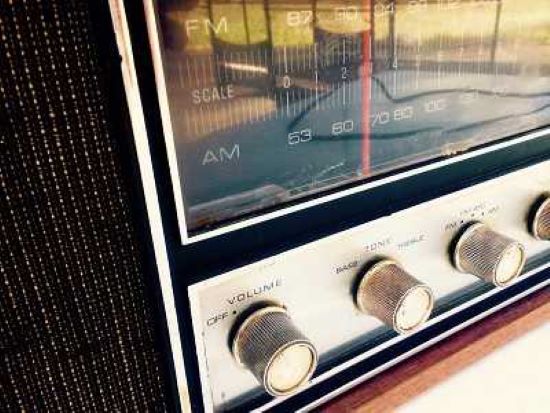Noting That Public Safety Shouldn’t be Compromised to Save a Buck, Reed Backs the AM Radio for Every Vehicle Act

Citing a layered approach to keeping public informed during emergencies and internet and cellular blackouts, 60 U.S. Senators support bipartisan bill to bolster U.S. emergency communication infrastructure by keeping AM radios standard in cars until a reliable alternative with similar reach and resiliency can replace ‘old school’ AM
WASHINGTON, DC – In an effort to ensure Americans can access critical information during any major emergency, a bipartisan group of lawmakers banded together to ensure Americans will continue to be able to access AM radio in their cars. U.S. Senator Jack Reed (D-RI) teamed up with Edward J. Markey (D-MA) and fifty-eight of their Senate colleagues in supporting the AM Radio for Every Vehicle Act (S. 1669). This bipartisan legislation would direct federal regulators to require automakers to continue including AM broadcast radio in their new vehicles at no additional charge.
AM (amplitude modulation) and FM (frequency modulation) radio both have sound waves encoded into a signal that can be picked up by receivers. AM signals can travel longer distances than FM ones, reaching around tall buildings and mountains to even remote areas, so they are the preferred method for dispatching emergency alerts. FM radio doesn’t have the same reach, but offers richer sound quality, making it the preferred choice for music listeners.
Looking to cut costs and boost profits, some auto manufacturers want to remove AM radio from their vehicle dashes. Electric vehicle manufacturers note that battery motors interfere with signals and render them more staticky and less pleasurable to listen to than satellite radio and high-tech streaming options. But lawmakers and emergency responders point out that while that may be true during regular commutes, in case of a major emergency, old-fashioned AM radio – which is consistent and free to the public – could be a real lifesaver and should be preserved until another system proves to be as reliable, resilient, and offers the diverse reach of AM radio in an emergency.
“AM radio is a dependable option. If there is a major emergency at the local, state, or national level, drivers shouldn’t be cut off from important safety information. AM radio is a reliable platform for getting timely information to listeners in storms and other emergencies. When disaster strikes, we need a multi-layered communication system in place to reach people and AM radio is a trusted part of that system. So I support keeping AM radio in cars and urge Congress to pass the bipartisan AM Radio for Every Vehicle Act,” said Senator Reed.
The Federal Emergency Management Agency (FEMA), along with state and local officials, relies on AM radio to transmit emergency alerts and communicate with the public during natural disasters and other emergencies. The bipartisan AM Radio for Every Vehicle Act has been endorsed by former FEMA Administrator Peter Gaynor, who also served as the head of the Rhode Island Emergency Management Agency (RIEMA).
According to the Federal Communications Commission (FCC), there are currently over 4,420 AM stations across the nation.
The AM Radio for Every Vehicle Act has been approved by the Senate Commerce, Science, and Transportation Committee and now has a filibuster-proof majority of 60 supporters in the U.S. Senate.
Companion legislation has been introduced in the U.S. House of Representatives and has 246 cosponsors. A House Energy and Commerce Subcommittee on Innovation, Data, and Commerce is holding a hearing today to examine access to AM radio in new cars.
In addition to Markey and Reed, the Senate bill is cosponsored by U.S. Senators: Tammy Baldwin (D-WI), John Barrasso (R-WY, Marsha Blackburn (R-TN), Richard Blumenthal (D-CT), John Boozman (R-AR), Katie Britt (R-AL), Sherrod Brown (D-OH), Ted Budd (R-NC), Maria Cantwell (D-WA), Shelley Moore Capito (R-WV), Robert Casey (D-PA), Susan Collins (R-ME), Catherine Cortez Masto (D-NV), Tom Cotton (R-AR), Kevin Cramer (R-ND), Steve Daines (R-MT), Joni Ernst (R-IA), Deb Fischer (R-NE), Kirsten Gillibrand (D-NY), Lindsey Graham (R-SC), Chuck Grassley (R-IA), Josh Hawley (R-MO), Mazie Hirono (D-HI), John Hoeven (R-ND), Cindy Hyde-Smith (R-MS), John Kennedy (R-LA), Angus King (I-ME), Amy Klobuchar (D-MN), James Lankford (R-OK), Ben Ray Luján (D-NM), Cynthia Lummis (R-WY), Joe Manchin (D-WV), Roger Marshall (R-KN), Robert Menendez (D-NJ), Jeff Merkley (D-OR), Jerry Moran (R-KS), Markwayne Mullin (R-OK), Lisa Murkowski (R-AK), Chris Murphy (D-CT), Jon Ossoff (D-GA), Pete Ricketts (R-NE), Jacky Rosen (D-NV), Mike Rounds (R-SD), Bernie Sanders (I-VT), Rick Scott (R-FL), Jeanne Shaheen (D-NH), Kirsten Sinema (I-AZ), Tina Smith (D-MN), Dan Sullivan (R-AK), Jon Tester (D-MT), Tommy Tuberville (R-AL), J.D. Vance (R-OH), Elizabeth Warren (D-MA), Sheldon Whitehouse (D-RI) Roger Wicker (R-MA), Ron Wyden (D-OR), and Todd Young (R-IN).